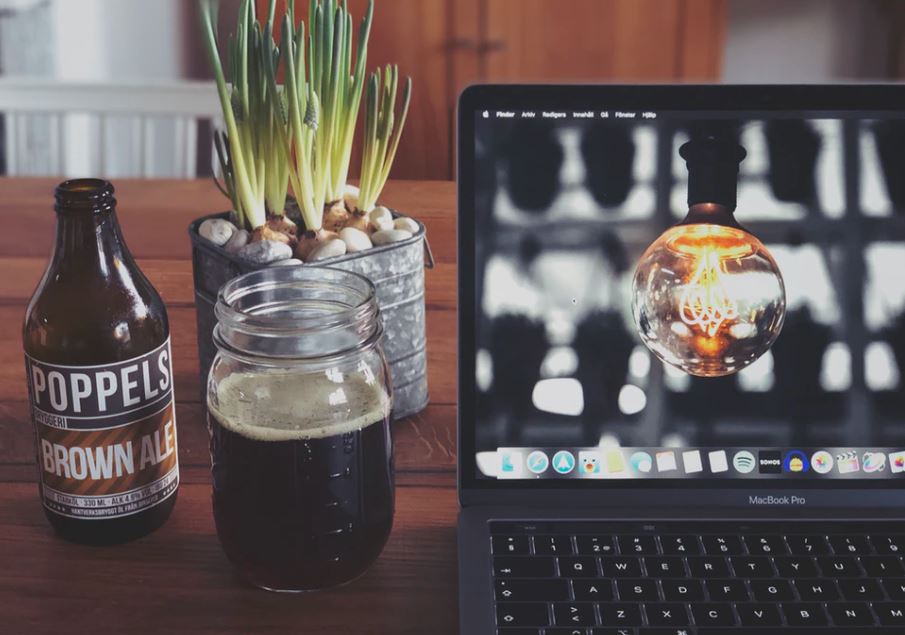Last updated : April 7, 2025
The statistics would definitely say yes. Drinking alcohol on the job has become the new normal during quarantine due to COVID-19. It has been documented with other crises such as Hurricane Katrina and 9/11, and early reports indicate increased alcohol consumption is happening again. Undoubtedly, stress and anxiety play a large role in these increased statistics, along with simple availability and opportunity to drink alcohol while working from home.
According to a recent article in Forbes Magazine, alcohol sales spiked by 55-58% across the nation for the week ending March 21, 2020. Tequila showed the biggest rise – up 73%, followed by gin, with wine sales up 66%. And one company that provides alcohol delivery has seen a 300% increase in their sales during this coronavirus pandemic. An online wine distributor reports over 2,100 new customers per day vs. their norm of 207 per day and a 578% increase in sales.
Who is drinking all of this alcohol? One out of three employees who have been required to work from home since the stay-at-home orders began admit that they are drinking alcohol during the work day. Will this continue when employees come back to the office? And, people who are accustomed to being randomly drug tested at work, but currently are not being drug tested, may be using drugs or alcohol before work or while they are on the job. Random drug testing is one of the best deterrents to help keep workplace drug and alcohol use contained.
Although increased alcohol consumption is not completely surprising, the data is still rather startling:
- A new study of 3,000 people working from home report that about a third of people in the United States who are working from home during the COVID-19 pandemic are also drinking on the job.
- About 36 percent of men and 26 percent of women said they’re drinking on the clock.
- About 32 percent said they were more likely to drink during work hours at home as opposed to when they worked elsewhere.
- Experts say alcohol consumption while working can affect job performance and could be noticed by employers.
- Experts also expressed concerns over the possibility that heavy alcohol use could increase during shelter-in-place orders.
Additionally, millions of American workers are in rehab, and this isolation has prevented them from attending meetings and seeking help in ways they had in the past, which can then easily lead to relapse. The longer the isolation continues the worse the problem will become.
The next big concern becomes what employees may do when they return to work.
Both drinking and drug use increase during times of high stress, with the isolation compounding the problem. Employers must be keenly aware of this possibility and be prepared to address it as their employees begin coming back to work. It will be critical for employers to follow their company’s drug free workplace policy and resume their random drug testing and alcohol testing program as soon as possible. Employers also need to be aware in the event that reasonable suspicion testing needs to be performed if any of your employees are impaired at work. In addition, be sure you have resources ready to provide to your employees in need, through your EAP program, SAMHSA, AA, etc. For more information and to see drinking on the job stats across the country (Ohio reports 22% of workers are drinking from home, compared to 67% in Hawaii, and only 8% in Arkansas), please follow this interactive guide from Alcohol.org.
As employers and managers, we are ALL worried about safety in the workplace.
Now, more than ever, we have to institute safety measures that we never even heard of or could have dreamed up just a couple of months ago, such as social distancing, wearing masks, providing hand sanitizer by the gallon, etc. Another critical part of this safety equation should be drug testing and alcohol testing. Resuming your random drug testing program is a very important measure in keeping your workplace safe as well. USA Mobile Drug Testing of Northeast Ohio is here to help you maintain your safe work environment as the state and your businesses begin to open up after COVID-19.

Ready to learn more or schedule a test? Please email kakitchen@usamdt.com.